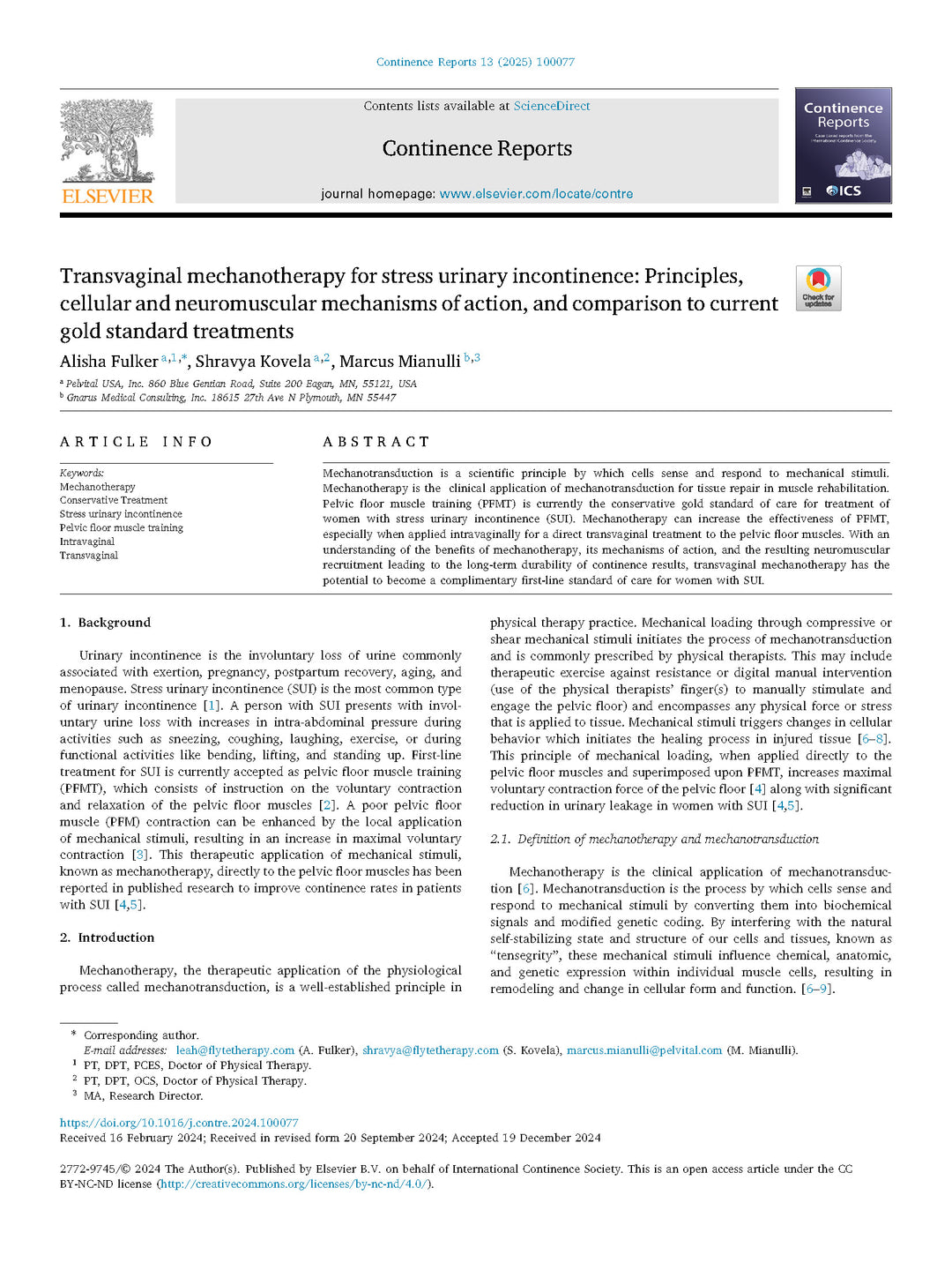Clinical Results
Flyte® is backed by strong clinical evidence – demonstrating outcomes and durability of treatment comparable to surgery.
Clinical Studies
Flyte was studied in patients with stress urinary incontinence (SUI) in 2 peer-reviewed, published clinical studies, including one of the largest US studies of its kind for an in-home treatment.
The outcome measures were:
- 1. Pad weight
- 2. Quality of life
- 3. Long-term durability of treatment effect
The Takeaway: Both studies showed that Flyte delivers continence rates and durability comparable to surgery in just 5 minutes a day for 6 to 12 weeks. Maintenance is not typically required.
Review Article
Published in Continence Reports in 2025,¹ an article reviewing the body of evidence surrounding transvaginal mechanotherapy for SUI demonstrated that transvaginal mechanotherapy for SUI delivers:
- • Superior pad weight reduction compared to traditional pelvic floor muscle training (PFMT)
- • Superior quality of life (QoL) improvements compared to traditional PFMT
- • Continence and durability outcomes comparable to surgery
The Takeaway: Incorporating transvaginal mechanotherapy in the treatment of female SUI improves both objective and subjective outcomes, while avoiding the risks of surgery. Flyte is a first-line, accessible treatment that should be part of the standard of care for SUI when PFMT is indicated.
A Closer Look at Flyte’s Clinical Studies
Single-Center Study at Arctic University (N = 60)²
Prior to the study, all participants had been referred to surgery after failing PFMT under supervised guidance for 1 year. The mean duration of symptoms was >9 years.
After completing Flyte protocol of 5 min per day for 6 weeks:
- • 82% of participants were continent by 6 weeks
- • 77% of participants reported continence at 2-year follow-up (N = 36)
- • No participants went on to get surgery, even at 2-year follow-up
Flyte successfully helped these women avoid surgery for their stress urinary incontinence (SUI).
Multi-Center, Randomized, Double-Blind, Controlled Study P-SUIT (N = 119)⁴
This study is unique in that it included women with mild, moderate, and severe stress urinary incontinence, including women with leakage of over 500g per 24 hours.
- • 71% of participants were dry or near-dry in 2-12 weeks
- • 91% of participants were responders to Flyte’s treatment
Long-term follow-up studied the durability of the treatment effect on quality of life over 2 years. Quality of life was measured via:
- • International Consultation on Incontinence Questionnaire (ICIQ)
- • Incontinence - Quality of Life Questionnaire (I-QOL): Despite majority discontinuing use of Flyte post-study, participants continued to improve, particularly for high-severity cases.
How to Prescribe Flyte
To prescribe Flyte, simply:
- 1. Complete the Flyte Prescription Form
- 2. Fax with relevant clinical notes showing medical necessity to the number on the form.
Our DME partners will take it from there, including pre-authorization work if necessary.
If you are a physical or occupational therapist prescribing Flyte, you will need the Flyte Prescription Form to be signed by the referring provider.










